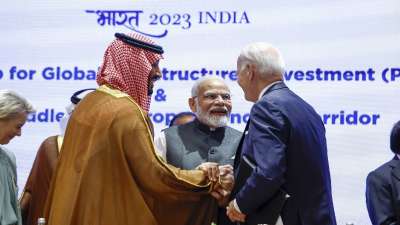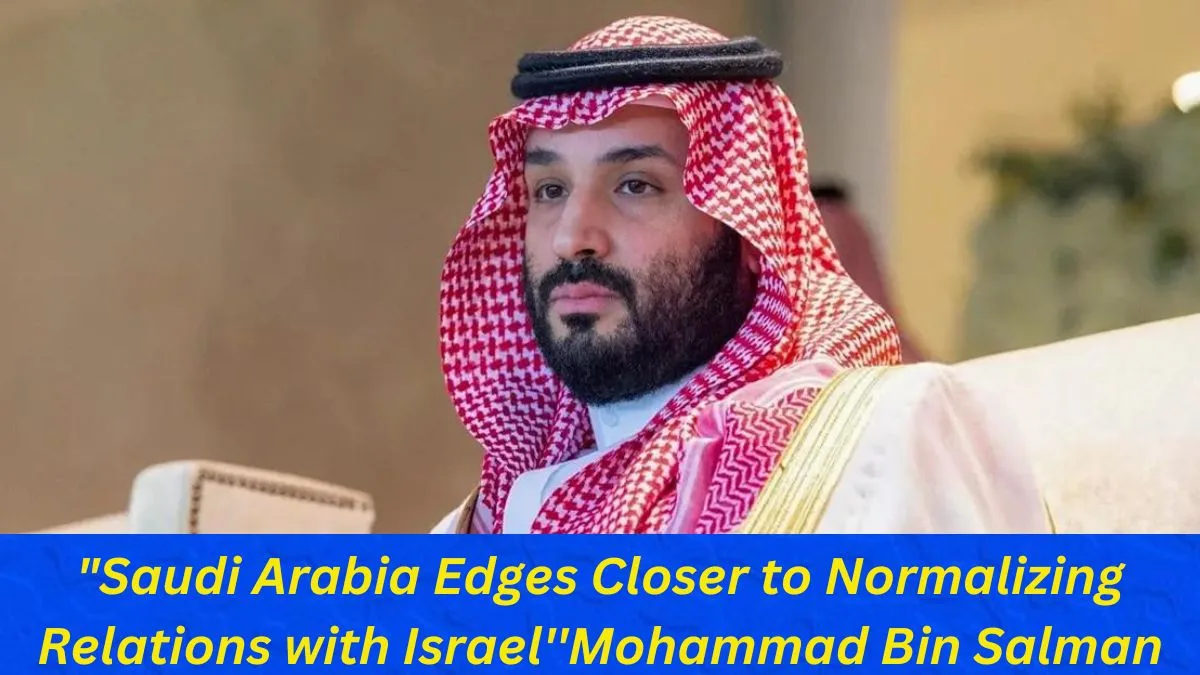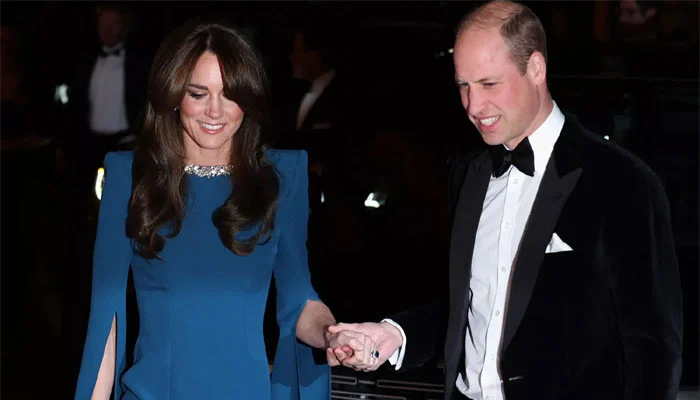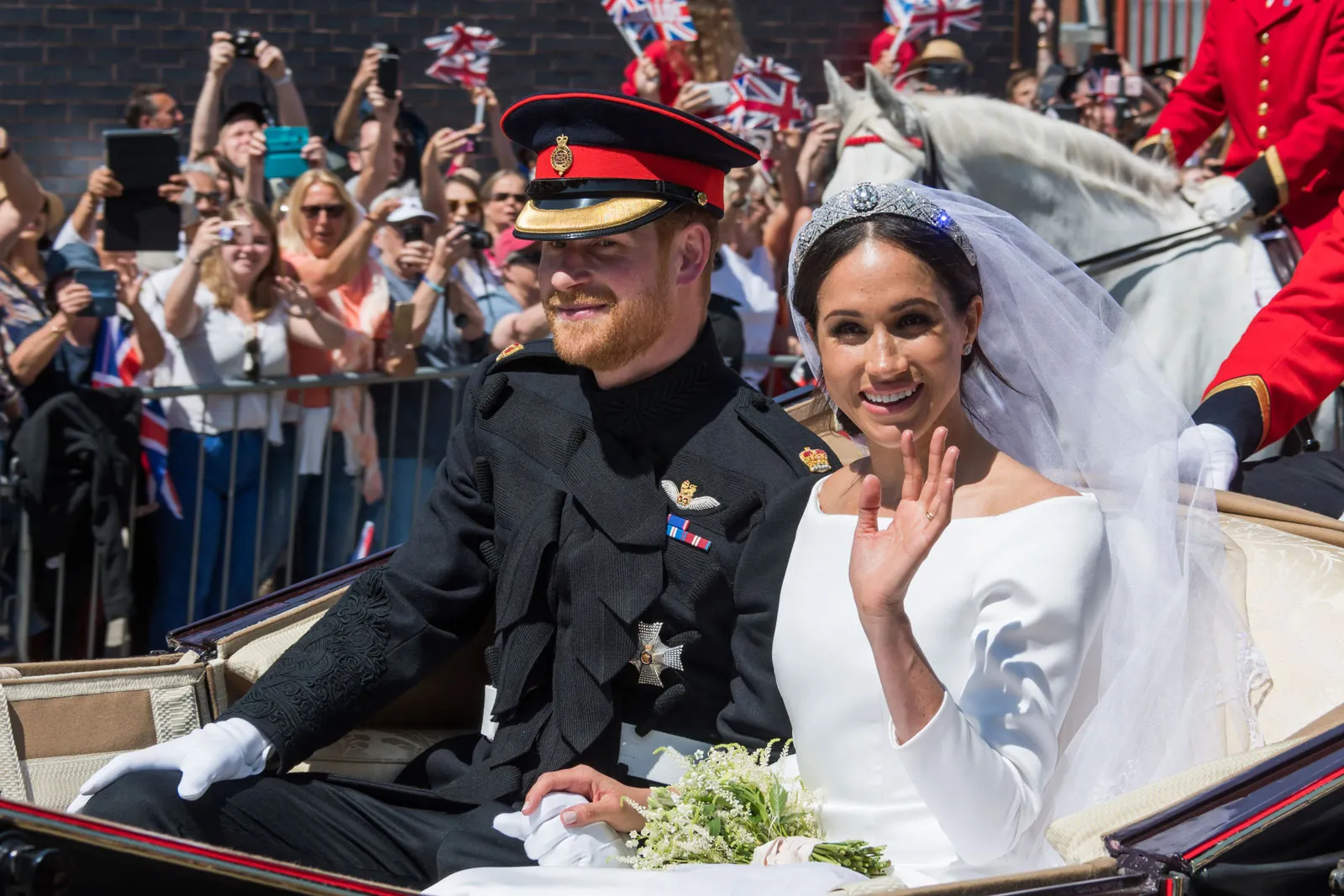Saudi Arabia’s Crown Prince, Mohammed bin Salman, emphasized the critical role of resolving the Palestinian issue in the process of normalizing relations with Israel. Speaking in an interview with Fox News, the Saudi Crown Prince revealed that the U.S. administration had put forth proposals to establish diplomatic ties with Israel. He further clarified that discussions regarding the establishment of relations with Israel are currently underway and proceeding positively.

The Crown Prince expressed Saudi Arabia’s commitment to enhancing the quality of life for Palestinians and positioning Israel as an active participant in the Middle East. He stated, “We are making continuous strides towards establishing relations with Israel on a daily basis,” underscoring the Kingdom’s dedication to fostering regional cooperation.
In a separate context, Crown Prince Mohammed bin Salman issued a stern warning regarding Iran’s potential acquisition of nuclear weapons. He stated unequivocally that if Iran were to possess such weaponry, Saudi Arabia would feel compelled to pursue a similar course of action. This statement was made during the Fox News interview.
Relations between Riyadh and Tehran have seen an upturn following a diplomatic agreement brokered by China in March, which marked the reestablishment of formal diplomatic ties between the two nations after seven years of estrangement. Crown Prince MBS noted that Iran was approaching the reconciliation efforts with Saudi Arabia with a sense of seriousness.
Regarding the ongoing efforts to normalize relations between Saudi Arabia and Israel, Crown Prince Mohammed bin Salman expressed optimism about the progress achieved thus far, emphasizing, “Every day brings us closer to our goal.” He refuted claims that the U.S.-brokered talks with Israel had been suspended.
In the context of normalizing ties with Israel, the Crown Prince emphasized the significance of addressing the Palestinian issue, stating, “The Palestinian issue holds great importance for us. It is a matter that needs resolution.” He continued, “We aim to improve the lives of Palestinians and involve Israel as a key player in the Middle East,” speaking in English during the interview.
The Biden administration has been actively pursuing a diplomatic breakthrough between Saudi Arabia and Israel, similar to the Abraham Accords, a series of normalization agreements brokered by the U.S. in 2020 between Israel and four Arab states during the Trump administration. As part of any potential agreement, Saudi Arabia has consistently stressed its demand for the establishment of an independent Palestinian state and other concessions from Israel to benefit the Palestinian people. Additionally, reports have surfaced indicating that Saudi Arabia is seeking increased security commitments from the U.S. and seeking assistance in the development of its civilian nuclear program.
To Know More About Saudi Arabia please click Here
You May Like:
Introduction of Saudi Arabia :
Saudi Arabia, officially known as the Kingdom of Saudi Arabia, is a prominent country located in the Arabian Peninsula in Southwest Asia. It is characterized by its rich history, cultural heritage, and significant geopolitical influence. As one of the world’s leading oil producers, Saudi Arabia plays a pivotal role in the global economy. Here is a detailed introduction to Saudi Arabia:
Geography and Location:
Situated on the Arabian Peninsula, Saudi Arabia shares borders with several countries, including Jordan, Iraq, Kuwait, Qatar, Bahrain, the United Arab Emirates, Oman, and Yemen. The Red Sea lies to the west, and the Arabian Gulf (Persian Gulf) to the east, providing the nation with extensive coastlines. The vast Rub’ al Khali, or Empty Quarter, the largest continuous sand desert in the world, spans much of the southern part of the country.
Capital and Major Cities:
Riyadh, the capital and largest city of Saudi Arabia, serves as the political, administrative, and financial center of the country. Other key cities include Jeddah, a major port city on the Red Sea known for its cosmopolitan atmosphere, and Dammam, located in the Eastern Province and a hub for the oil industry.
History:
Saudi Arabia has a rich history dating back centuries. The Arabian Peninsula, including present-day Saudi Arabia, played a central role in the ancient spice trade routes. The birth of Islam in the 7th century brought profound changes to the region, with Mecca and Medina becoming two of the holiest cities in Islam. The modern Saudi state was founded in 1932 by Abdulaziz Ibn Saud, consolidating various tribal regions into a unified kingdom.
Culture and Religion:
Saudi Arabia is deeply rooted in Islamic culture, and the majority of its population adheres to Sunni Islam. The country is home to the two holiest cities in Islam, Mecca, and Medina, attracting millions of Muslims for the annual Hajj pilgrimage. The strict interpretation of Islamic law, known as Sharia, significantly influences Saudi society, impacting legal, social, and cultural norms.
Economy:
Saudi Arabia possesses the world’s largest proven oil reserves, making oil and petroleum-related industries the cornerstone of its economy. The country has undertaken ambitious economic diversification initiatives outlined in the Vision 2030 program, aimed at reducing dependency on oil and fostering growth in non-oil sectors.
Government and Monarchy:
Saudi Arabia is an absolute monarchy, and its political system is based on the principles of Wahhabism, an ultra-conservative form of Sunni Islam. The King serves as both the head of state and government. As of my last knowledge update in January 2022, King Salman bin Abdulaziz Al Saud is the ruling monarch. The country’s legal system is based on Islamic law, and the Consultative Assembly (Majlis al-Shura) serves as an advisory body.
Society and Traditions:
Family and tribal ties are crucial elements of Saudi society. Traditional dress, including the abaya for women and the thobe for men, reflects the cultural and religious values of the country. Hospitality is highly regarded, and traditional music, dance, and poetry play integral roles in preserving cultural heritage.
Saudi Arabia’s strategic importance, economic influence, and cultural significance make it a focal point in regional and global affairs. However, the country has faced scrutiny for its human rights record and restrictions on personal freedoms, prompting ongoing discussions about reforms and societal changes.


